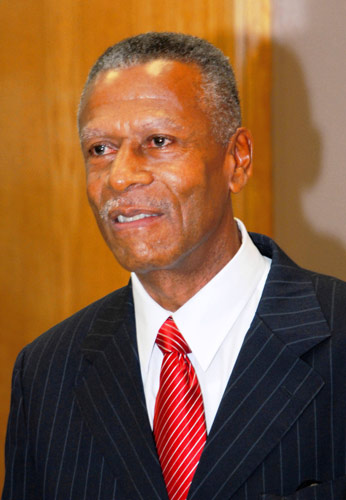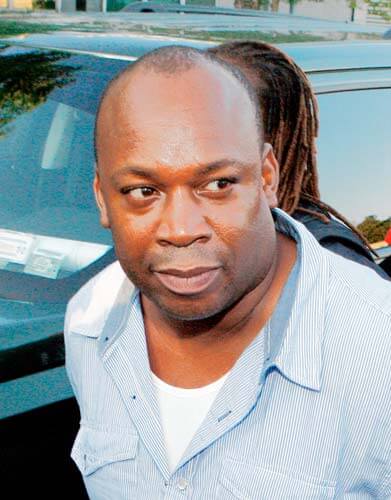Actress Ellen Holly said she is compelled to tell a story she is certain daytime television viewers of the first, recurring community saga would be interested.
A principal contributor to the success of ABC-TVs “One Life To Live,” Holly and a cast of characters contributed to the drama, which became known as a soap opera — because it was primarily sponsored by detergents and household cleaning items.
Holly portrayed Carla Gray, a Black woman whose move to the small enclave of Llanview, Pennsylvania presented challenges previously ignored on mainstream television.
For starters, she was the first of her race to establish a storyline on a recurring television drama.
Fact is, she was the first Black woman to star on daytime television.
At the time the Civil Rights Movement had ignited a fire that exposed the shame of a nation. Throughout that era, its rage snatched much of the newspaper headlines.
It was 1968 and race mattered.
The same year Dr. Martin Luther King Jr. was assassinated.
College campuses were rife with student protests and activism.
It was also the year terrorism repeated itself at home with the shooting death of presidential candidate Sen. Robert F. Kennedy.
On the social scene, former first lady Jackie Kennedy married Greek shipping magnate Aristotle Onassis. The program introduced faces that would become familiar and to many a welcomed guest to many households.
Reportedly, Holly’s entre to television made significant strides in the industry as the show quickly garnered coverage in mainstream publications such as Newsweek, TV Guide and the New York Times.
Allegedly, it quickly developed a large Black fan base (one that reportedly comprised one quarter of the show’s total viewership).
The television station, she said, banked on the success of the trailblazing series and quickly developed another program they named “All My Children.”
The follow-up show also featured a Black story line, as did the third addition titled “General Hospital.”
Holly’s face covered numerous publications among them, America and the world-famous premier Ebony Magazine – which at the time was the only source for illuminating Black achievement.
Along with colleagues, Holly seemed valuable currency in the cash-craved industry that demanded consistency, conviction and authenticity.
It mattered little that a LLanview location could not be found on any map.
To viewers, the town was real.
Residents of the eastern town mirrored Americans; often parodied their lifestyle and provided diversion housewives could escape a mundane reality.
Some claim, the 2:00 p.m. timeslot signaled time-out from reality.
Holly’s Carla had similar issues as her white neighbors.
However, she had one additional to deal with and that was race.
Initially, a storyline focused on a choice she was faced in deciding which of two eligible doctors to wed. Whether she would accept the proposal of the Black bachelor or cross the color line attracted unprecedented and immediate media attention.
Needless to say Carla was the talk of the towns, cities and states.
She emerged the poster child, pioneer and most familiar Black image on daytime TV.
Despite those significant accomplishments, according to her autobiography, “One Life: The Autobiography of an African American Actress” Holly was consistently denied a salary commensurate with her white peers.
And after suffering months of what she perceived as overt hostility from one producer, she claims an imbalance in treatment prevailed behind the scenes.
“I was a victim of the ‘one-drop’ rule.”
Although Holly contends she “brought enormous value to the show;” “was always on time;” regularly mastered her character on the “first take” and considered herself an “exemplary employee” she maintains that being Black – (or by 19th century southern classification a bi-racial or any individual who possesses one drop of Black blood) – was the primary reason for her mistreatment.
“I was paid scale – the union’s lowest, I had no performance protections and offered one and half shows a week,” Holly explained.
That she had worked in theater with actors the likes of Jack Lemmon, producer Joe Papp, and other reputed thespians and lionized by the Black community, discrimination haunted her 17-year stint on the popular soap opera.
“If I was as dark as Halle Berry, I might have had an entirely different career experience,” Holly said. She believes because of their distinctly ethnic appearance, Blacks such as Berry and Lena Horne are considered to portray specific roles.
“They look ethnic…we have to go through a second filter. The window of opportunity shuts down after the first” because the perception is that “we would offend the sensibilities of whites.”
Holly believes the way she photographs and her features may have caused confusion to some producers.
She is convinced some would rather cast her in the role of a Black woman ‘passing’ for white.
Holly said despite the fact she contributed to making the soap a ratings gold mine and that her role expanded to the other soaps and helped make ABC the dominant player in daytime drama for the next two decades, on the eve of her contract renewal, Holly alleges she was informed that she “was not worth keeping.”
“While I realize that nothing can be done now to rectify the treatment we received, as the show comes to an end I want to thank longtime fans of the show for caring about the character I played and to let them know we (other Black cast members) did not desert them by choice,” Holly said.
Though she remains grateful for the sincere support she received from the cast and crew after she was terminated, Holly is now on a mission to make it known how she believes the production team, management and series creator really treated the Black talent that helped make the show a trailblazing hit and iconic part of American television history.
Holly hopes that soap opera historians will research the true history of the Carla character, as the other is one she would never have agreed to play. Holly is hopeful that as viewers and critics mark the close of the show’s legendary run, they will also take time to acknowledge some of the darker aspects of the show’s history, and to appreciate the early African-American talents who were crucial players in the show’s development.
Additionally, the thespian hopes to spur dialogue about the devastating obstacles fair-skinned Black actors face in being cast by Hollywood.
Jan. 13, fans of daytime television’s soap opera watched the final episode of the series, which for decades held daily suspense and anticipation for details of life in the fictitious town.
Catch You On The Inside!
























